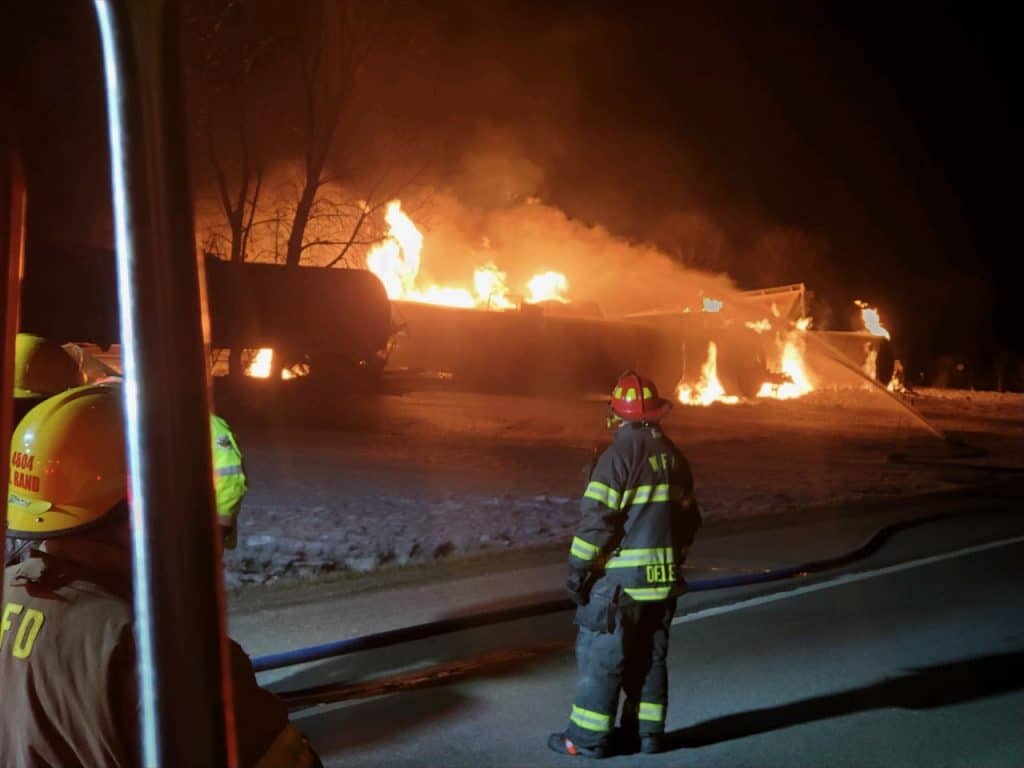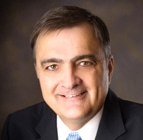
Media outlets and elected officials continue to spotlight rail safety in the wake of derailments in East Palestine, Ohio, Raymond, Minn. and states across the country. That makes it even more crucial for SMART members, families and allies to get involved in the fight for rail safety laws, SMART-TD Alternate National Legislative Director Jared Cassity told SMART News.
“The best way for members to get involved is to use the Action Center on our website – you go on there and you can write your representatives and let them know what your concerns are,” Cassity said. “We need everyone on board here; it’s going to take actual peer pressure and constituent pressure on our elected officials to get stuff moving and get things done.”
The Norfolk Southern disaster showed the nation what SMART-TD members have been saying for years: precision scheduled railroading (PSR) is bad for workers, communities and the environment. Now, the heightened scrutiny has presented an opportunity for rail labor to push for new safety regulation. At the federal level, that has taken the form of the bipartisan Railway Safety Act of 2023, legislation that includes a nationwide mandate for well-trained two-person crews on all freight trains; restrictions on train length and weight; regulations on the installation, frequency, upkeep and response to wayside defect detectors; speed restrictions; drastically increased fines for rail companies and management employees who do not adhere to rail safety protocols; and much more.
“Unfortunately, precision scheduled railroading has taken a toll, and the railroads can no longer hide behind what they’ve done to railroading. The dangers are out there for all to see, and East Palestine is proof of that,” Cassity said during his SMART News appearance. “This piece of legislation speaks to stuff that we need desperately to improve rail safety, like crew size issues, train length issues, train makeup issues, defect detector issues. It puts in place legislation that we need to start seeing the changes to put an end to PSR.”
SMART-TD officers have been lobbying U.S. Senators to support the Railway Safety Act since its introduction, with Ohio State Legislative Director Clyde Whitaker recently appearing with Ohio Senator Sherrod Brown to promote the act. And that’s not all: Across the country, SMART-TD local unions have lobbied for state-level rail safety laws, forming a comprehensive effort to bring change to the industry. In Ohio, that recently culminated in the passage of two-person crew legislation.
“State Legislative Boards and State Legislative Directors are actively pursuing legislation in their states that are on the same level or in the same vein of what we’re doing federally,” Cassity said. “So our members need to reach out and contact their state directors to see what they can do to help … so [politicians] can see the support and feel the need, the desperate need that we have from our workforce to keep each other safe.”
Members looking to get involved in the fight for rail safety can text “Rail Safety” to 67336 (message and data rates may apply).
Freight rail safety in the news
- Ohio lawmakers demand Norfolk Southern pay for damages caused by Sandusky train derailment last October
WKYC.com
April 5, 2023 - The True Dangers of Long Trains
Pro Publica
April 3, 2023 - US Justice Department sues Norfolk Southern following train derailment in East Palestine
CNN
March 31, 2023 - Ohio lawmakers OK rail safety rules after train derailment
AP News
March 29, 2023 - Railroads Slow Down Push To Reduce Train Crew Sizes, But It May Not Last
WV Public Broadcasting
March 29, 2023 - How Decades of Lax Rules Enable Train Disasters
The Atlantic
March 23, 2023
